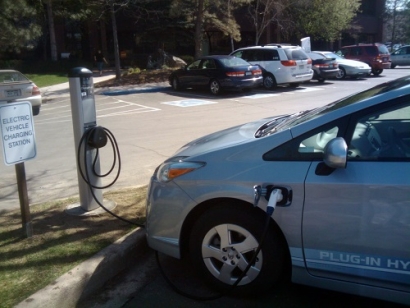
The Government of Canada will provide funding to three recipients to help Canadians get into zero-emission vehicles and use low-carbon fuels.
The British Columbia Institute of Technology will demonstrate Level 2 electric vehicle charging stations in urban areas and commercial parking lots that make better use of the grid’s existing electrical capacity. Additionally, it will develop a way to control and monitor electric vehicle chargers from different vendors.
“This funding is an important step in the evolution of the British Columbia Institute of Technology Energy OASIS project and an investment in our sustainable transportation future,” said Kim Dotto, Dean, Applied Research, British Columbia Institute of Technology
The Hydrogen Technology & Energy Corporation will install a retail hydrogen fuelling station in the Vancouver area, part of a six-station network it is building in B.C.’s Lower Mainland and Victoria to encourage uptake of more hydrogen-fuelled vehicles.
B.C. Hydro will demonstrate an innovative Level 2 EV charger for use in multi-unit residential, commercial and municipal buildings. It will also deploy 21 Level 3 EV fast chargers across the province to further Canada’s vision for a coast-to-coast network.
This investment builds on the Government’s $182.5 million ($139.4 million US) total investment to grow Canada’s electric and alternative fuel vehicle infrastructure so that using electric and alternative fuel vehicles is easier and more convenient for Canadians. In addition, the Province of British Columbia’s Clean Energy Vehicle Program is providing $1.4 million ($1.07 million US) to support the HTEC and BC Hydro projects.
Through Canada’s national energy dialogue, Generation Energy, the majority of Canadians stated they believe the transition to electric vehicles and lower-carbon fossil fuel alternatives is not a luxury but a necessity for Canada’s low-carbon future.
“Building green infrastructure paves the way to a low-carbon future by reducing greenhouse gas emissions. Our government is proud to make investments that will reduce costs and address potential hurdles for the deployment of next-generation electric vehicle charging infrastructure in urban areas,” concluded Terry Beech, Member of Parliament for Burnaby North–Seymour.
For information Government of Canada

